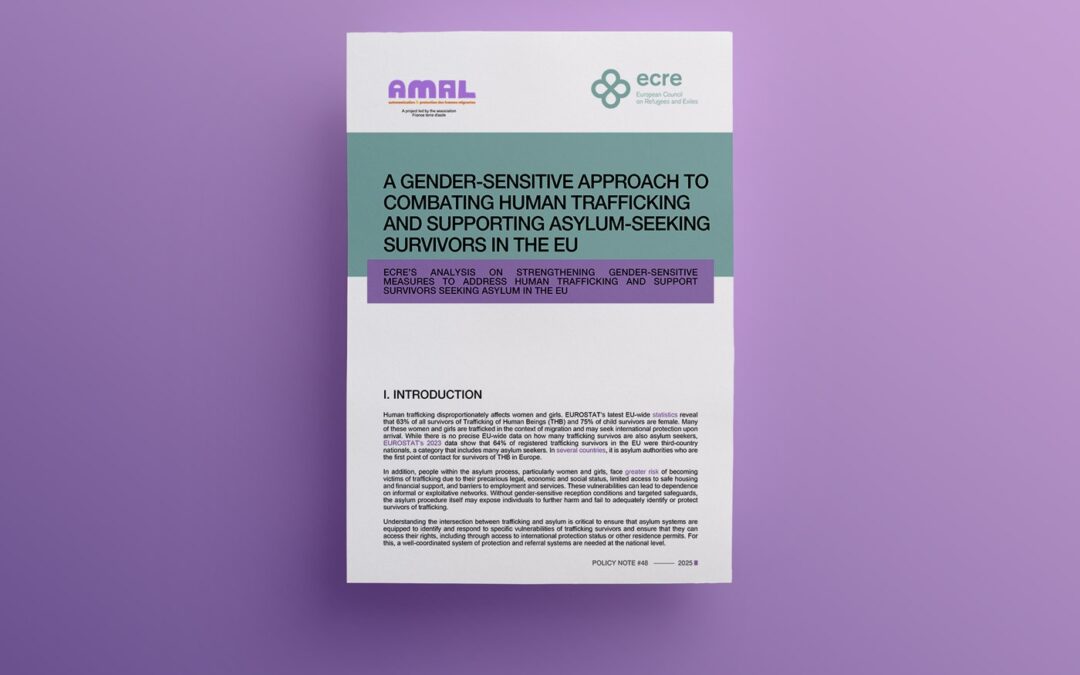|Published on: 22nd July 2025|Categories: News|

ECRE has published a policy note which explores how EU asylum and anti-trafficking frameworks can better protect refugee women and girls who are at risk of or have survived human trafficking. Drawing on EU and international legal standards – as well as national-level assessments – ECRE provides a gender-sensitive analysis of the revised EU Anti-Trafficking Directive (ATD) and its intersection with the proposed Facilitators Directive.
Women and girls make up the majority of trafficking survivors in the EU, and many are affected in the context of migration. Despite this, gaps persist in early identification, access to gender-sensitive reception conditions, and proper referral mechanisms within asylum procedures. Survivors also risk being criminalised for irregular migration or denied adequate protection due to restrictive legal frameworks.
Drawing on findings from ECRE’s Asylum Information Database (AIDA) and other expert reports, including country evaluation reports prepared by the Group of Experts on Action against Trafficking in Human Beings (GRETA), the note identifies persistent legal and practical barriers across EU member states.
The note also provides the following concrete recommendations for MS on adopting gender-sensitive strategies for prevention, victim protection and survivor support:
- Identifying and referring trafficking survivors as early as possible;
- Establishing effective national referral systems that are both gender-sensitive and which involve asylum authorities;
- Guaranteeing survivors’ access to asylum procedures and international protection;
- Providing access to asylum and specialised, unconditional support;
- Guaranteeing protection from unsafe transfers under the Dublin Regulation;
- Collecting disaggregated data and ensuring coordinated anti-trafficking efforts;
- Strengthening national coordination mechanisms and anti-trafficking action plans.
ECRE also urges the European Commission to closely monitor MS implementation and calls on co-legislators to ensure that the proposed Facilitators Directive aligns with international protection standards and does not criminalise survivors or those who give them assistance.

